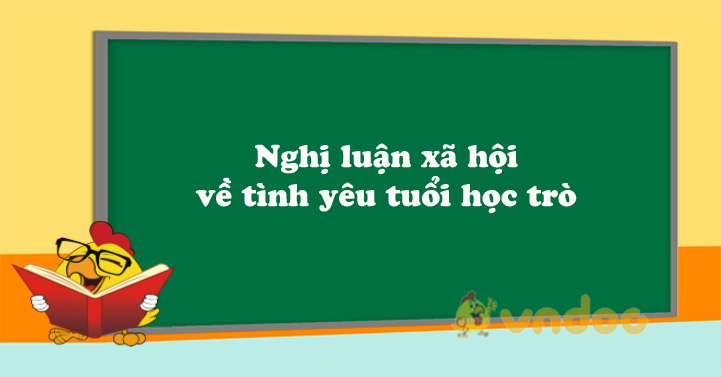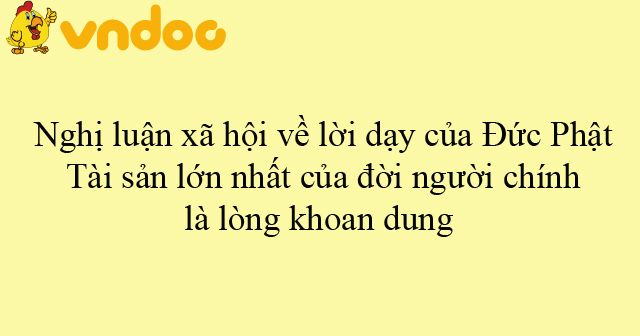|
ĐỀ SỐ 11 ««««« |
ĐỀ THI THỬ THPT QG NĂM HỌC 2020 Môn: Tiếng Anh Thời gian làm bài: 60 phút, không kể thời gian phát đề |
Mark the letter A, B, C, or D on your answer sheet to indicate the word whose underlined part differs from the other three in pronunciation in each of the following questions.
Question 1. A. massage B. carriage C. voyage D. dosage
Question 2. A. contain B. feature C. picture D. culture
Mark the letter A, B, C, or D on your answer sheet to indicate the word that differs from the other three in the position of primary stress in each of the following questions.
Question 3. A. completion B. understand C. material D. behavior
Question 4. A. studious B. century C. similar D. semester
Mark the letter A, B, C, or D on your answer sheet to indicate the correct answer to each of the following questions.
Question 5. John paid $2 for his meal, ___________ he had thought it would cost.
A. not as much B. not so much as C. less as D. not so many as
Question 6. David refused ___________ in the contest because he was ill.
A. to participate B. participate C. participating D. to participating
Question 7. It’s essential that every student ___________ all the lectures.
A. attends B. attend C. has attended D. attended
Question 8. He managed to win the race ___________ hurting his foot before the race.
A. in spite of B. despite of C. although D. because of
Question 9. You should be a little more ___________ if you want to attract their attention.
A. imaginative B. imagine C. imagination D. imaginatively
Question 10. Unfortunately, my trip to France ___________ because I couldn’t save enough money.
A. fell through B. tried out C. took over D. turned up
Question 11. After she had had a couple of glasses of champagne ___________ she started to feel __________.
A. narrow-minded B. light-headed C. light-footed D. light-hearted
Question 12. If your invitations are met with repeated ___________ , you should just leave him alone.
A. hypotheses B. negatives C. blunts D. rebuffs
Question 13. She left her husband after a ___________ row.
A. burning B. heavy C. crashing D. blazing
Question 14. Mr. Huy received a warning for speeding. He ___________ so fast.
A. shouldn’t have driven B. would have driven
C. should have D. might have driven
Question 15. My father is very talented and kind-hearted. I always ___________ him.
A. look for B. look like C. look after D. look up to
Question 16. I had all the information at my ___________ before attending the meeting.
A. fingertips B. thumbs C. hands D. fingers
Question 17. ___________ winter I spent in ___________ USA was one of ___________ best in my life.
A. A/ a/ the B. The/ the/ a C. The/ Ø / the D. The/ the/ the
Question 18. I have been looking for this book for months, and ___________ I have found it.
A. in the end B. in time C. at the end D. at present
Mark the letter A, B, C, or D on your answer sheet to indicate the word(s) CLOSEST in meaning to the underlined word(s) in each of the following questions.
Question 19. My wife was so keen on the picture that she paid through her nose for it.
A. paid nothing B. turned a deaf ear
C. was offered D. paid much more than usual
Question 20. Scientists warn of the impending extinction of many species of plants and animals.
A. irrefutable B. imminent C. formidable D. absolute
Mark the letter A, B, C, or D on your answer sheet to indicate the word(s) OPPOSITE in meaning to the underlined word(s) in each of the following questions.
Question 21. There has been insufficient rainfall over the past two years, and farmers are having trouble.
A. adequate B. unsatisfactory C. abundant D. dominant
Question 22. She had never seen such discourtesy towards the director as it happened in the meeting last week.
A. politeness B. rudeness C. measurement D. encouragement
Mark the letter A, B, C, or D on your answer sheet to indicate the option that best completes each of the following exchanges.
Question 23. - Hoa: “Have you been able to reach Nam?”
- Lan: “ ___________ .”
A. That’s no approval B. Yes, I’ve known him for years
C. No, the line is busy D. It’s much too high
Question 24. - Tom: “Sorry, I forgot to phone you last night.”
- Mary: “ ___________ ”
A. I have nothing to tell you. B. Oh. Poor me!
C. Never mind! D. You was absent-minded
Read the following passage and mark the letter A, B, C, or D on your answer sheet to indicate the correct word or phrase that best fits each of the numbered blanks from 25 to 29.
Starting a data entry business is easier than trying to work from job to job. Having a business means (25)__________ people will come to your business whenever they need a service you (26)__________ . In other words, instead of having to always (27)__________ for jobs on websites, you will be able to have clients come to you as needed. One important thing to (28)__________ when starting a data entry business is that customer service is really important.
It’s hard to get anywhere in the data entry field if you don’t provide your customers with all the services they need. It’s important that you take your time to really care for your customers completely. Once you are ready to start your data entry business it’s time to start building a great team. You want to have a team that can do a (29)__________ range of tasks so that your business can fill customer’s needs. You want to always test your team before giving them the task of working with a client.
Question 25. A. when B. if C. that D. what
Question 26. A. bid B. advance C. refuse D. offer
Question 27. A. assign B. apply C. appeal D. demand
Question 28. A. forgive B. remember C. discount D. fail
Question 29. A. narrow B. open C. wide D. restricted
Read the following passage and mark the letter A, B, C, or D on your answer sheet to indicate the correct answer to each of the questions from 30 to 34.
Scientists do not yet thoroughly understand just how the body of an individual becomes sensitive to a substance that is harmless or even wholesome for the average person. Milk, wheat, and egg, for example, rank among the most healthful and widely used foods. Yet these foods can cause persons sensitive to them to suffer greatly. At first, the body of the individual is not harmed by coming into contact with the substance. After a varying interval of time, usually longer than a few weeks, the body becomes sensitive to it, and an allergy has begun to develop. Sometimes it’s hard to figure out if you have a food allergy, since it can show up so many different ways. Your symptoms could be caused by many other problems. You may have rashes, hives, joint pains mimicking arthritis, headaches, irritability, or depression. The most common food allergies are to milk, eggs, seafood, wheat, nuts, seeds, chocolate, oranges, and tomatoes. Many of these allergies will not develop if these foods are not fed to an infant until her or his intestines mature at around seven months. Breast milk also tends to be protective. Migraines can be set off by foods containing tyramine, phenathylamine, monosodium glutamate, or sodium nitrate. Common foods which contain these are chocolate, aged cheeses, sour cream, red wine, pickled herring, chicken livers, avocados, ripe bananas, cured meats, many Oriental and prepared foods (read the labels!). Some people have been successful in treating their migraines with supplements of B-vitamins, particularly B6 and niacin. Children who are hyperactive may benefit from eliminating food additives, especially colorings, and foods high in salicylates from their diets.
Question 30. The topic of this passage is ______________.
A. reactions to foods B. food and nutrition
C. infants and allergies D. a good diet
Question 31. According to the passage, the difficulty in diagnosing allergies to foods is due to ______________
A. the vast number of different foods we eat
B. lack of a proper treatment plan
C. the similarity of symptoms of the allergy to other problems
D. the use of prepared formula to feed babies
Question 32. The phrase “set off” is closest in meaning to ______________.
A. relieved B. identified C. avoided D. triggered
Question 33. What can be inferred about babies from this passage?
A. They can eat almost anything.
B. They should have a carefully restricted diet as infants.
C. They gain little benefit from being breast fed.
D. They may become hyperactive if fed solid food too early.
Question 34. The author states that the reason that infants need to avoid certain foods related to allergies has to do with the infant’s ______________.
A. lack of teeth B. poor metabolism
C. underdeveloped intestinal tract D. inability to swallow solid foods
Read the following passage and mark the letter A, B, C, or D on your answer sheet to indicate the correct answer to each of the questions from 35 to 42.
We are descendants of the ice age. Periods of glaciation have spanned the whole of human existence for the past 2 million years. The rapid melting of the continental glaciers at the end of the last ice age spurred one of the most dramatic climate changes in the history of the planet. During this interglacial time, people were caught up in a cataclysm of human accomplishment, including the development of agriculture and animal husbandry. Over the past few thousand years, the Earth’s climate has been extraordinarily beneficial, and humans have prospered exceedingly well under a benign atmosphere.
Ice ages have dramatically affected life on Earth almost from the very beginning. It is even possible that life itself significantly changed the climate. All living organisms pull carbon dioxide out of the atmosphere and eventually store it in sedimentary rocks within the Earth’s crust. If too much carbon dioxide is lost, too much heat escapes out into the atmosphere. This can cause the Earth to cool enough for glacial ice to spread across the land.
In general the reduction of the level of carbon dioxide in the atmosphere has been equalized by the input of carbon dioxide from such events as volcanic eruptions. Man, however, is upsetting the equation by burning fossil fuels and destroying tropical rain forests, both of which release stored carbon dioxide. This energizes the greenhouse effect and causes the Earth to warm. If the warming is significant enough, the polar ice caps eventually melt.
The polar ice caps drive the atmospheric and oceanic circulation systems. Should the ice caps melt, warm tropical waters could circle the globe and make this a very warm, inhospitable planet.
Over the past century, the global sea level has apparently risen upwards of 6 inches, mainly because of the melting of glacial ice. If present warming trends continue, the seas could rise as much as 6 feet by the next century. This could flood coastal cities and fertile river deltas, where half the human population lives. Delicate wetlands, where many marine species breed, also would be reclaimed by the sea. In addition, more frequent and severe storms would batter coastal areas, adding to the disaster of the higher seas.
The continued melting of the great ice sheets in polar regions could cause massive amounts of ice to crash into the ocean. This would further raise the sea level and release more ice, which could more than double the area of sea ice and increase correspondingly the amount of sunlight reflected back into space. The cycle would then be complete as this could cause global temperatures to drop enough to initiate another ice age.
Question 35. According to the passage, carbon dioxide is stored in each of the following EXCEPT __________.
A. polar ice caps B. sedimentary rocks C. rain forests D. fossil fuel
Question 36. Which of the following does the author NOT mention as a consequence of a large rise in global sea level?
A. the destruction of wetlands B. the flooding of cities
C. a more diverse marine population D. severe storms
Question 37. According to the passage, what is the relationship between carbon dioxide and the Earth’s climate?
A. Carbon dioxide, which is trapped in glacial ice, is released when warm temperatures cause the ice melt.
B. The greenhouse effect, which leads to the warming of the climate, is result of too much carbon stored in the Earth’s crust.
C. Rain causes carbon dioxide to be washed out of the atmosphere and into the ocean.
D. An increase in atmospheric carbon dioxide results in the warming of the climate.
Question 38. The word “beneficial” in the first paragraph is closest in meaning to __________.
A. calm B. inviting C. thoughtful D. favorable
Question 39. It can be inferred from the passage that the development of agriculture __________.
A. preceded the development of animal husbandry. B. withstood vast changes in the Earth’s climate.
C. did not take place during an ice age. D. was unaffected by the greenhouse effect.
Question 40. The word “this” in the third paragraph refers to __________.
A. man’s upsetting the equation B. the reduction of the level of carbon dioxide.
C. a volcanic eruption D. the melting of the polar ice caps
Question 41. The word “inhospitable” is closest in meaning to __________.
A. imperfect. B. uninhabitable. C. unlikable D. cruel.
Question 42. What is the main topic of the passage?
A. The possibility that the polar ice caps will melt
B. The coming of another ice age
C. Man’s effect on the carbon dioxide level in the atmosphere
D. The climate of the Earth over the years
Mark the letter A, B, C, or D on your answer sheet to indicate the underlined part that needs correction in each of the following questions.
Question 43. We have conducted (A) exhausting research (B) into the effects of smartphones on students’ (C) behaviour and their (D) academic performance.
Question 44. Do you (A) ever feel (B) that life is not being fair to you (C) because you cannot seem to get the job (D) where you want or that really suits you?
Question 45. Mrs. Steven, (A) along with her cousins (B) from New Mexico, (C) are planning (D) to attend the festivities.
Mark the letter A, B, C, or D on your answer sheet to indicate the sentence that is closest in meaning to each of the following questions.
Question 46. I had no sooner got to know my neighbors than they moved away.
A. Soon after I got to know my new neighbors, I stopped having contact with them.
B. If my new neighbors had stayed longer, I would have got to know them better.
C. Once I had got used to my new neighbors, they moved somewhere else.
D. Hardly had I become acquainted with my new neighbors when they went somewhere else to live.
Question 47. “You’re always making terrible mistakes.” said the teacher.
A. The teacher asked his students why they always made terrible mistakes.
B. The teacher realized that his students always made terrible mistakes.
C. The teacher complained about his student making terrible mistakes.
D. The teacher made his students not always make terrible mistakes.
Question 48. If it hadn’t been for the wind, the fire would never have spread so fast.
A. Even without the wind, the fire would have spread just as fast.
B. It was the wind that caused the fire to spread at such a speed.
C. Had there been a wind, the fire would have spread even faster.
D. The force of the wind affected the way the fire spread.
Mark the letter A, B, C, or D on your answer sheet to indicate the sentence that best combines each pair of sentences in the following questions.
Question 49. Tom snored all night. I didn’t sleep a wink.
A. I didn’t sleep a wink, which made Tom snore all night.
B. Tom snored all night as a result of my sleeplessness.
C. What with Tom snoring all night, I didn’t sleep a wink.
D. What made Tom snore all night was my sleeplessness.
Question 50. My mother is good at cooking. My father is bad at it.
A. My mother is good at cooking, but my father is bad at it.
B. My mother is good at cooking, for my father is bad at it.
C. My mother is good at cooking, or my father is bad at it.
D. My mother is good at cooking, so my father is bad at it.


.jpg)
.jpg)

